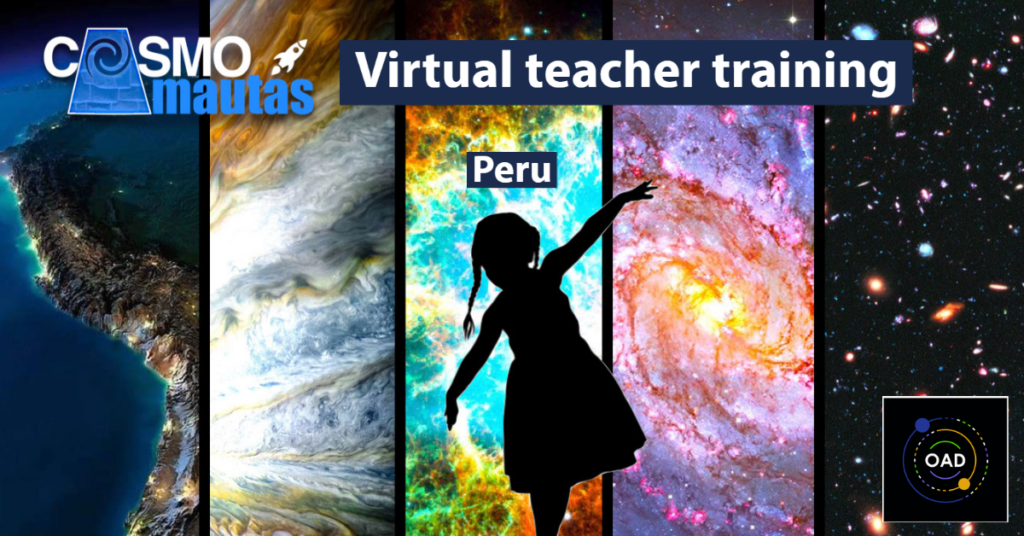Countries in Latin America are going through the worst educational crisis in their history according to UNESCO. The case of Peru is particularly critical, with the highest reported mortality per capita due to COVID-19, more than 85% of schools closed throughout 2020 and 2021, and the entire public education system declared in a state of emergency till mid 2022. The pandemic has severely intensified inequalities in education, which was already well below the standards in developed countries, in particular in the areas of Science and Math (PISA). This is most critical for the most vulnerable populations, building up on the acute problem of social and gender inequality and the centralisation of infrastructure, teacher training, and outreach activities to the capital.
Given the importance of STEM for social development and economic growth, in the second edition of the CosmoAmautas program (amauta=teacher in the Quechua language) we will bring teacher training workshop in Astronomy and STEM education for 100 high school teachers in rural areas in Peru. We have selected 6 of the most vulnerable regions in the country, which have been most impacted by the pandemic in terms of poverty and education. Our education model focuses on inquiry-based learning, and includes lectures, hands-on activities, and motivates the creation of self-sustaining high school Astronomy Clubs led by the teachers and hosting motivated students. The virtual format enables an easier scheduling, logistics and gender balance, given that most female teachers are limited for lengthy in-person meetings as heads of their households. One crucial focus of our program is to continue the development of open-access online material, including a platform of educational video games to reinforce the learning process. The multiplicative impact of our project expects to enrich the science education of >5000 students within one year, and is tailored for the current virtual format forced by the pandemic.
Contact:
Daniel Kleffmann thekleffmann@gmail.com

